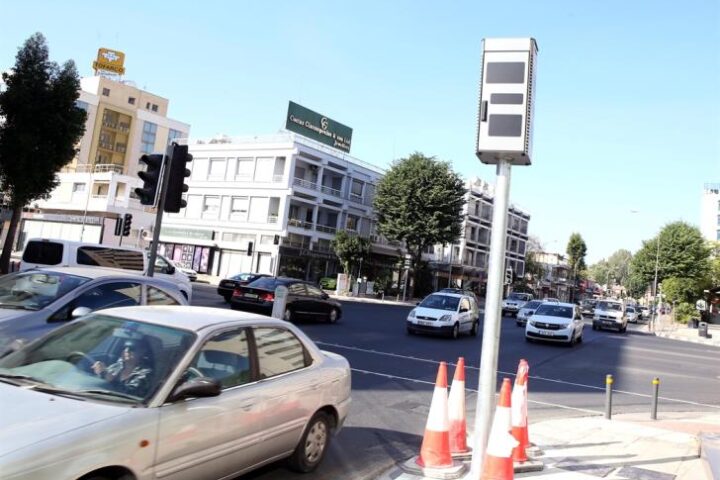Cyprus is becoming a melting for higher education, attracting international universities ready to establish a campus, while local institutions are upgrading their status.
One of the most prestigious universities in the region, the American University of Beirut (AUB), has cast its vote of confidence as it plans to establish its first international campus in Paphos.
Paphos hopes to benefit from these universities as Larnaca has done with UCLan (University of Central Lancashire Cyprus) and the newcomer American University of Cyprus on the Dhekelia road.
During a ceremony last week at the Markidio theatre in Paphos, AUB representatives and Paphos local authorities signed the agreement to establish the facility in the town’s historic centre.
The agreement was signed in the presence of President Nicos Anastasiades, the US Deputy Secretary of State Lee Satterfield, who was in Cyprus exclusively for this purpose, and AUB president Fadlo Khuri.
The AUB has invested €29 mln in the project, and construction is due to get underway in June or July and be completed within 12 months to welcome students for September 2023.
The campus will cover an area of 10,000 square metres and host some 2,000 students.
Paphos Mayor Phedon Phedonos had confirmed to the Financial Mirror that the AUB would be setting up a ‘satellite university’ in the town.
In his comments to the Financial Mirror, Phedonos said Paphos municipality and local stakeholders are excited over the town’s prospects of becoming an educational hub.
“Bringing in universities was one of the goals we had set to lift Paphos out of the stagnation it had fallen into.
“We aim to add another source of income to the town’s economy after tourism and construction development, that of education,” said Phedonos.
The Cyprus Technological University (TEPAK) will be setting up a tourism and hospitality management school in Paphos in the coming year. Construction is set to begin soon.
“With the establishment of this very high-level university (AUB), plus the other two universities that we will have from 2023 and the existing Neapolis University, Paphos will join the map of higher education cities with all the resulting advantages for the local community,” Phedonos said.
He argued the addition of some 3,200 students would breathe new life into the resort town.
“Education will strengthen Paphos’ strive to enter a new era.
“We have plans to build more educational institutions that will act as ‘engines’ for innovation and ‘catalysts’ for sustainable development.”
AUB’s representatives appeared equally delighted with their choice to set up a campus in Paphos.
“Cyprus offers a vibrant and rapidly expanding private higher education market, access to the European Union, high levels of academic freedom and proximity to Beirut,” said an AUB spokeswoman.
AUB Paphos will initially offer 6-8 undergraduate and graduate majors leading to degrees in politics, philosophy and economics (BA); psychology (BA); computer science (BS); industrial engineering (BS); engineering management (MS); business administration – management (BBA); and business analytics (MS).
Raising standards
Meanwhile, UCLAN will establish a medical school in cooperation with the University of Balamand (Lebanon) in the Larnaca district.
On the same day, AUB and Paphos signed their agreement; UCLAN and the UOB signed a letter of intent in the presence of Larnaca Mayor Andreas Vyras.
Vyras said: “The cooperation between these two institutions in medical science and developing a new medical school based in Larnaca will benefit Cyprus, Larnaca, and the universities themselves.”
Fanos Tekelas, head of UCLAN’s business department, told the Financial Mirror the Larnaca-based university aspires to elevate standards.
UCLan Cyprus is essentially the Cyprus arm of the UK university, registered as a Cypriot institution offering both a Cypriot university degree and a UK degree.
“With the move, we expect to significantly contribute to the development of medicine in Cyprus.
“It is no secret that many Cypriot scientists chose to leave the island due to the lack of opportunities.
“We are often made aware of Cypriot doctors and medical scientists making a name for themselves abroad,” said Tekelas.
He said that with the university’s latest venture, UCLAN expects to see its share rise among Cypriot students but also from the region.
“So far, we have large numbers of students from the Balkans.
“We now want to put our university and Cyprus high up in the choices of students in the broader eastern Mediterranean and the Middle East.”
The University of Balamand is one of the biggest and second-ranked universities in Lebanon and the Arabic world more generally, and has a high-quality medical school.
“UCLAN is in a race with itself to raise the stakes and offer a higher level of education.
“We are already known for our high standard of education offered in the tourism industry.”
He said the course in tourism professions had been rated as one of the best ten in the world by the Academic Ranking of World Universities, also known as the Shanghai Ranking.
UCLAN has a close to a 2,000-strong student community.
“We have seen the number of newcomers triple this year, as more courses are added to the schedule, while we have also launched evening classes to facilitate people who want to work while studying.”
“Larnaca and Famagusta were left behind when it came to higher education investments.
“This is no longer the case as the region is drawing the attention of foreign and local universities,” said Tekelas.
Meanwhile, the University of Cyprus School of Marine Sciences and Technology is also ready to launch a school in Larnaca.
Earlier this year, Larnaca Municipality announced cooperation with TEPAK, which will offer the first postgraduate program in Maritime and Finance from September.
The cooperation is essentially the first step in setting up a university in the city, with the two sides in discussions, through working groups, to decide where the school will be situated.










